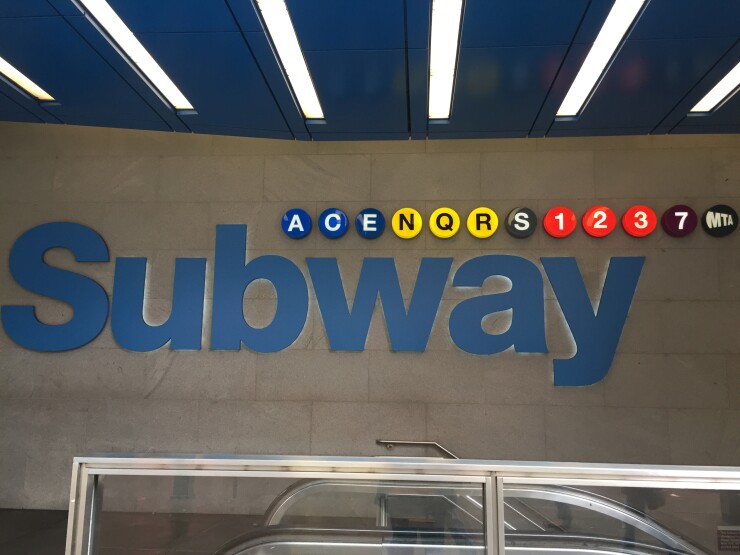The U.S. ranks the worst in the world when it comes to the average per-mile cost of tunneled transit projects, according to the Eno Center for Transportation.
The U.S. paid an average of $1.3 billion per mile in 2020 for tunneled transit projects.
That compares to $569 million in Japan, the next-highest country, and $292 million in South Korea and $120 million in Norway.
Eno's Sept. 29 report, "On the Right Track: Rail Transit Project Delivery Around the World," examines 132 rail projects in 10 democratic countries. It's part of Eno's Project Delivery, which aims to improve transit rail project delivery in the U.S. by examining chronic cost and timeline issues with U.S. transit projects.
The report comes as U.S. public transit agencies are in line to see a 65% increase in funding over the next five years — a total of $90 billion through 2026 — from the Infrastructure Investment and Jobs Act.
"With this significant infusion of investment, there is a particular emphasis on making sure that money for new public transit projects is spent more effectively and that projects are delivered on time and on budget," Eno said in the

Adding 132 projects to its previous data, Eno found that the U.S. pays more than a 50% premium to build at-grade and tunneled rail projects compared to other peer countries.
The premium grows much higher when compared to the lowest-cost countries, including Germany, Chile and South Korea.
When it comes to average per-mile cost of at-grade transit projects, the U.S. does slightly better, coming in with the third-highest costs in the world, behind Japan and Mexico, with a per-mile average cost of $132 million.
At-grade projects in the U.S. take an average of three months longer to build than similar projects in other countries, and tunneling projects take more than nine months longer, Eno said.
The higher costs come despite the fact that the U.S. projects tend to be less complex in terms of engineering.
The U.S. per-mile average for tunneled projects drops to $582 billion — still the highest in the world but significantly lower — if New York City subway projects are excluded, Eno said.
New York City's Second Avenue Subway cost $3.5 billion per mile, and No. 7 Line extension cost $3 billion per mile.
In New York City, transit costs are "head and shoulders above everyone else," with higher costs tied in part to high labor costs tied to work rules and overtime, said Paul Lewis, Eno's Chief Finance Officer and Policy Director, during a Sept. 29 webinar that accompanied the release of the paper.
Labor costs are not a significant driver of elevated costs in general, Lewis added.
"There is a lot of nuance in here and of course it's not always an apples to apples comparison, but it does give an order of magnitude of where the U.S. stands and what level of emphasis we need to place on solving this problem," Lewis said. "One of the best ways we can change the dynamic here in the United States is to get out and go visit other countries to see what works best."
South Korea, Chile, Germany and Norway all built transit projects efficiently and at relatively low cost.
There's no silver bullet, Eno said, but in general the U.S. needs to improve its public governance of transit projects to help bring down costs.
Bringing in stakeholders early in the planning and dividing large projects into small construction contracts are also best practices seen in other countries.
"Getting the right institutions and the right staff to lead the project is really, really critical and we don't spend enough time working on that in this country," Lewis said. "The project sponsor needs to have the right governance authorities and staff to lead a transit megaproject."
Public sector staff need to be empowered to make fast decisions, he added.
Chile, with an average per-mile tunneled cost of $135 million, demonstrates the success of breaking longer tunneled projects into a series of smaller construction contracts, which is more manageable and competitive, Eno said.
Public private partnerships can be a useful tool for improving project delivery, though success in other countries is "closely tied to effective public sector oversight of private partners," the report said.
Eno's first project deliver report, "Saving Time and Making Cents," which examined transit costs in western Europe and Canada, was released in 2021.
The Federal Transit Authority is one of the program's funders.
Clarification: The MTA





